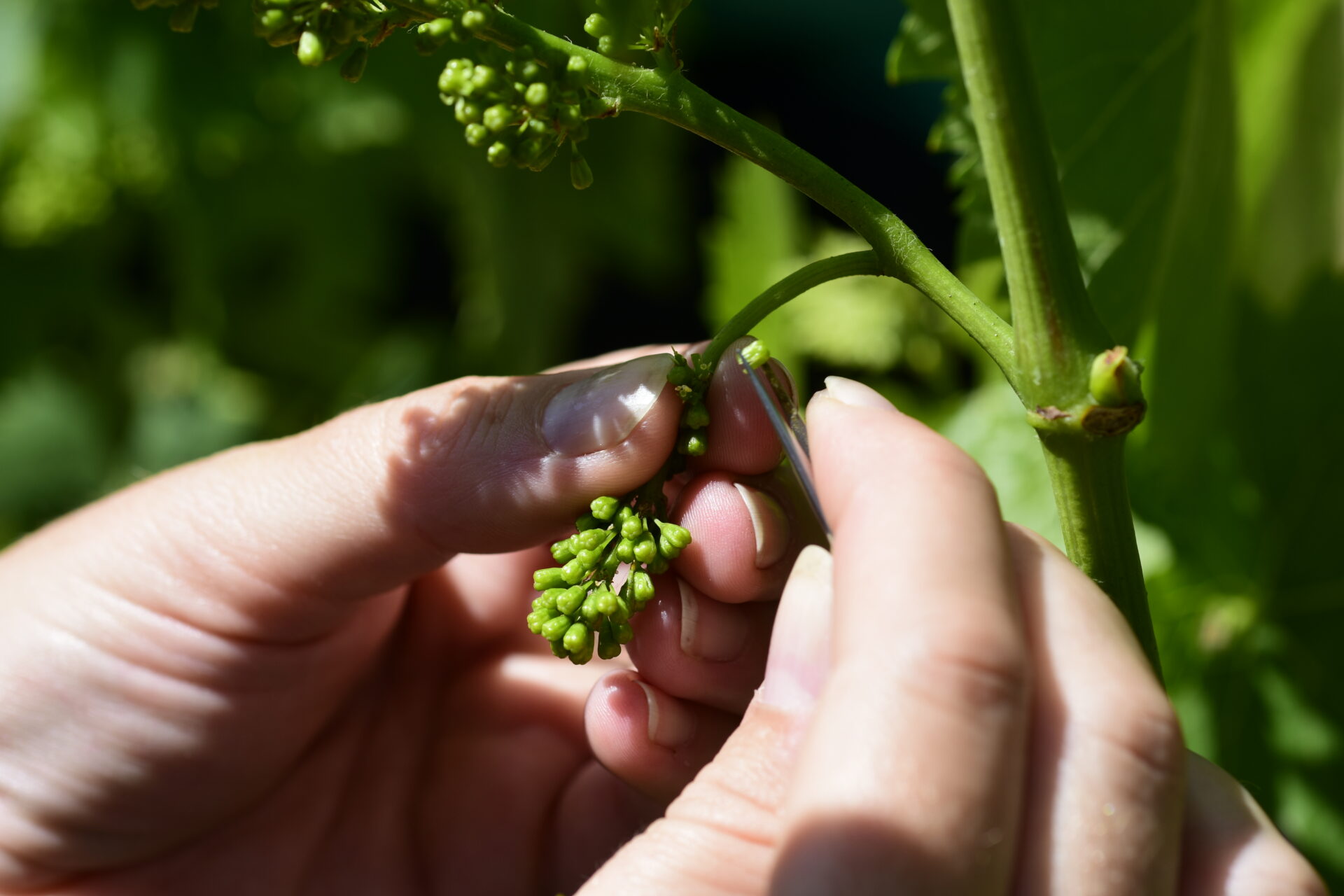

Working towards more resistant Sangiovese
11 June, 2020For some years now, CREA* and the Fondazione MACH of San Michele all’Adige – centers of reference in Italy and among the most prestigious in Europe for agronomic research – have been working on a project to select grapevine varieties resistant to the major fungal, powdery mildew and downy mildew diseases. These diseases are very aggressive, leading winegrowers to treat their vineyards to protect against them.
Francesco Ricasoli and his technical team have carried out continuous research in methods of cultivation that are both more sustainable and respectful of our territory’s biodiversity. This, united with their love for the prince of Chianti Classico’s varieties, motivated them to participate in this study with Brolio’s Sangiovese. The project is coordinated by the agronomist Massimiliano Biagi, who has been studying this superb variety for nearly twenty years.
In recent years, CREA and MACH have worked on identifying donor plants. This is why, in the days our vineyards were flowering, MACH researchers arrived in Brolio with a valuable load of flowers from a species of grapevine naturally resistant to various diseases and genetically very close to our Sangiovese, to start the process of crossbreeding. The Sangiovese flowers have been “emasculated” and put in contact with the pollen of the donor plant, and about 50 clusters have been fertilized. In ideal climatic conditions, these will give life to up to 5,000 seeds. All these seeds will soon be sown with the aim of obtaining 1,000 to 2,000 seedlings that will be infected to verify their degree of resistance as soon as they develop their first leaves.
Massimiliano Biagi explains: “Our goal is twofold. We wish to give life to more resistant plants in order to reduce treatments in the vineyard, possibly eliminate them altogether. But of course we also want to ensure that these vines produce the highest quality of Sangiovese grapes, which give life to our Chianti Classico and not only. It will take a few more years to get confirmation of the results, a period in which we’ll devote the utmost care and dedication to this project.”
*The Council for Agricultural Research and Economics, part of the Ministry of Agricultural, Food and Forestry Policies; Arezzo office, directed by Dr. Paolo Storchi.







